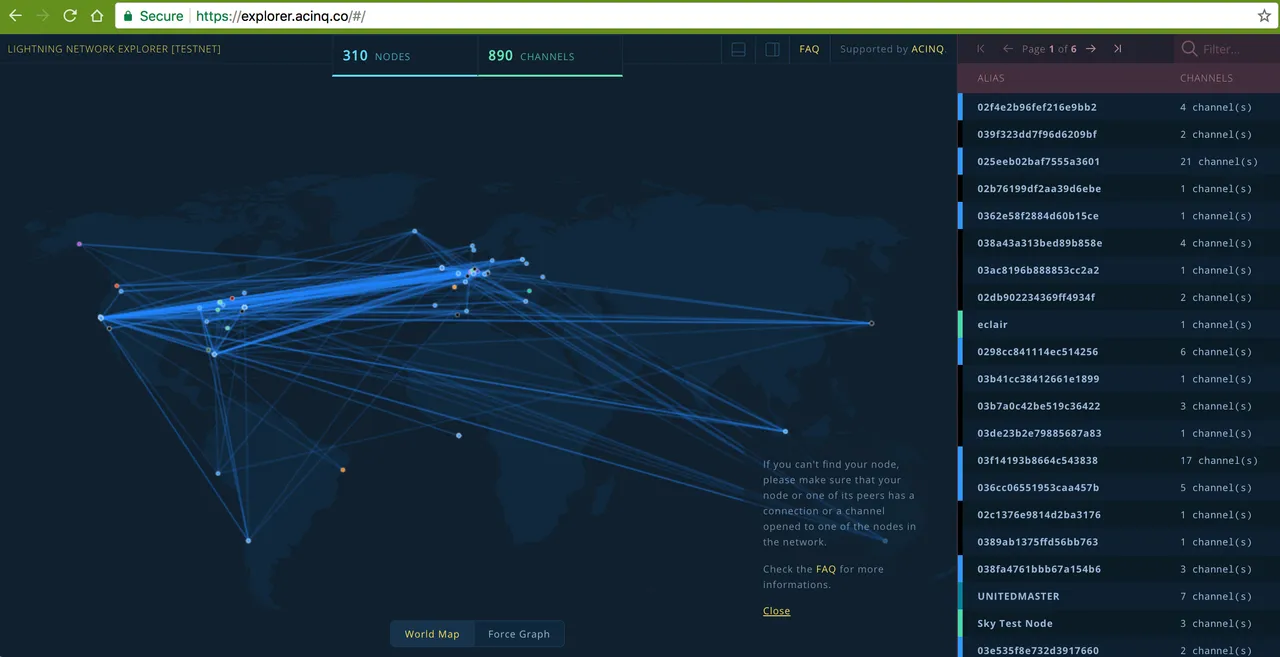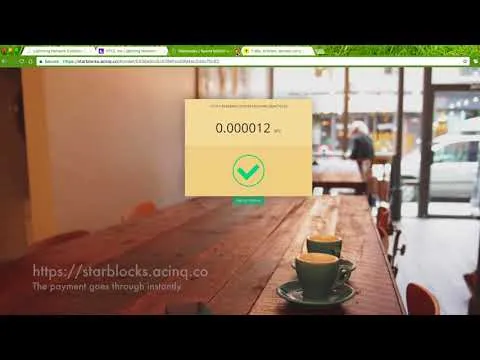Bitcoin's Lighting Network will revolutionize the way we spend money. It's coming soon - it was already tested on Bitcoin's Mainnet and it's available for pubic testing on the Testnet.
I'm crazy excited about it and I genuinely believe this will be the future of digital currency.

Why Lightning Is Revolutionary
- Real time and almost fee-free transactions.
- Significantly increases Bitcoin's operating scale (without compromising security).
- Opens the economy to micro streamed payments.
- Adds a layer of privacy (not all transactions are settled on the blockchain).
A Quick History
- White Paper released in February 2015.
- Tested on Bitcoin's Mainnet in December 2017.
- Testnet is live and available for public testing here.
When will it be here? What's The Release Date?
- Most people expect it to fully launch on Bitcoin's Mainnet sometime in the next 6 months (up to June 2018).
- There's no official release date. Developers are cautious because security is their priority (no rushed deployment).
- It's an agreed open source protocol - it's not owned or developed by any one individual or company. So now it's up to companies, individuals and the community to develop the applications to support it.
- There are three main companies that are actively involved in its development: Blockstream, Acinq and Lightning Labs. Blockstream was co-founded by Adam Back, check out my earlier post on Adam's paper and his influence on Satoshi Nakamoto (founder of Bitcoin). Lightning Labs was originally co-founded by Joseph Poon and Thaddeus Dryja, the original authors of the Lightning paper.
See It In Action - Live Test Net
- Use the Testnet yourself!
- Go to https://htlc.me/
- Try to make a test payment at https://starblocks.acinq.co/#/ or https://yalls.org/
View a video of my experience on Testnet.
The Problem It Solves
- Bitcoin can only settle ~220 million transactions a year (7 transactions a second) because of its 1MB block every 10 minutes limitation (refer to my post here for background on blocks and mining). This assumes 250 bytes/tx (source).
- Increasing the block size won't permanently fix the problem, in order to allow 7 billion people (world's population) to make 2 transactions a day, you would need 24GB Blocks. A block of this size would lead to a massive concentration in mining, making a 51% attack a key security risk.
The blockchain as a payment platform, by itself, cannot cover the world’s commerce anytime in the near future. If each node in the bitcoin network must know about every single transaction that occurs globally, that may create a significant drag on the ability for the network to encompass all global financial transactions.
Lightning Network White Paper, 2015
How The Solution Works
- Lightning Network is essentially an agreement between end users to net off the ownership of funds at a later time, thereby deferring what is broadcast to the blockchain.
- It does not require trust. The two end users pre-commit/guarantee their funds for use on the Lightning Network and can always enforce against each other on the blockchain.
- It allows for real time payments because there is no need for confirmations.
- The power of this solution comes from the fact that it is a network. If you have a channel open to Bob, and Bob has a channel open to Alice, you can transact on the Lightning Network to Alice
What's All This About Bitcoin Cash?
- Supporters of Bitcoin Cash (including the website Bitcoin.Com which is run by Bitcoin Cash's biggest ambassador, Roger Ver) do not like Lightning Network and claim it violates Satoshi Nakamoto's vision. If you don't know who Satoshi is please check out my first post.
- Bitcoin Cash is literally just a copy of the Bitcoin code back in August. It made some simple amendments (i.e. increasing the size of blocks from 1MB to 8MBs) in order to speed up the network and lower transaction fees. It also avoided a key upgrade/change to Bitcoin - Segregated Witness, which was and remains controversial.
- Bitcoin's developer team chose not to increase the block size. They pointed out that it isn't a permanent solution to the scalability problem (eventually 8MBs will be insufficient) and because bigger block sizes can lead to concentration in mining, they instead encouraged solutions like the Lightning Network.
- Bitcoin Cash will not be able to accept Lightning transactions because it does not support Segregated Witness. If Bitcoin Cash was widely adopted, it will suffer scaling problems (high fees and slow transactions) due to its 8MB block limit.
Thank You!
Thanks for reading my post! Check out my other posts here - I focus on Cryptocurrency and Finance.
For a general overview of Bitcoin check out Bitcoin - so how does it actually work.
Upvotes are appreciated for motivation. Comments/questions/corrections are welcomed. 🙃
